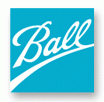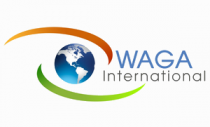Global Oncology Market 2017-2023 Featuring AstraZeneca, Bristol-Myers Squibb, Celgene, Novartis, Pfizer & Roche
DUBLIN, September 28, 2017 /PRNewswire/ --
The "Global Oncology Market to 2023 - Robust Growth Driven by Rising Prevalence and Increased Uptake of Immune Checkpoint Inhibitors" report has been added to Research and Markets' offering.
http://mma.prnewswire.com/media/539438/Research_and_Markets_Logo.jpg
Oncology comprises a large and diverse group of indications, encompassing virtually all sites and tissues in the human body. The diseases are characterized by abnormal cell proliferation, which is followed by local tissue invasion and, at an advanced stage of the disease, the migration of the cancer cells to other parts of the body. Cancer is a genetically driven disease, with iterative mutations providing selective advantages to the cells in the context of the specific tissue site, followed by clonal expansion.
Cancer is anticipated to become increasingly prevalent due to aging populations and rising levels of obesity in the developed world. Furthermore, the development and approval of more targeted oncology treatments is anticipated to decrease toxicity and increase chemotherapy usage in elderly patients. Targeted treatment administration will increase the overall survival of poor-performance-status patients (having impaired functional status) and enable more rounds of chemotherapy to be administered.
In 2012, there were 32.6 Million people living with any type of cancer within five years of diagnosis. These are generally incurable once they progress to the stage where they are unresectable. Chemotherapy compounds are a mainstay treatment for cancers of all types, at various disease stages. In a typical course of therapy for cancer, multiple chemotherapy compounds are administered sequentially in combination regimens, as an adjunct to surgery and radiation therapy. Chemotherapy drugs are cytotoxic to dividing cells, meaning that they act on both healthy and malignant tissues and are fairly toxic.
There has been a shift towards developing targeted therapies, such as mAbs and cell therapies. Targeted therapies, by their nature, have less toxicity associated with their use and as a result can be administered to more cancer patients, who are commonly elderly and have co-morbidities, therefore increasing the overall survival of this group and the number of treatment cycles they may receive. The most commercially successful oncology treatments are mAbs such as MabThera/Rituxan, Avastin and Herceptin.
Key market players (as determined by the total oncology revenue), namely Roche, Celgene, Bristol Myers Squibbs and Novartis, are forecast to maintain their strong market shares throughout the forecast period. Nevertheless, despite the approaching patent expiries of Avastin, Kadcyla, Perjeta and Tarceva, Roche is expected to maintain the highest market share of any company.
The report Global Oncology Market to 2023 Robust Growth Driven by Rising Prevalence and Increased Uptake of Immune Checkpoint Inhibitors provides an introduction to oncology, including disease epidemiology, symptoms, etiology, pathophysiology, co-morbidities and complications and prognosis. Methods of diagnosis are also provided.
Scope:
-- Global revenue for the oncology market is forecast to grow at a Compound
Annual Growth Rate (CAGR) of 10.66%, from $118.6 billion in 2016 to
$241.0 billion in 2023. Which drugs will achieve blockbuster status and
how will the key player companies perform during the forecast period?
-- The oncology pipeline is large and fairly diverse and contains 7,773
products. How does the composition of the pipeline compare with that of
the existing market? What are the most popular types of molecule type
and molecular target in the pipeline?
-- What mechanisms of action and molecule types are most common for
pipeline products being trialed in the various key indications?
-- How will the market shares and CAGRs of the top 20 pharma companies
compare within oncology?
-- What proportion of the key players' revenues will be attributable to
oncology products?
Key Topics Covered:
1 Table of Contents
1.1 List of Tables
1.2 List of Figures
2 Introduction
2.1 Therapy Area Introduction
2.2 Symptoms
2.3 Diagnosis
2.4 Etiology and Pathophysiology
2.4.1 Etiology
2.4.2 Pathophysiology
2.5 Co-morbidities and Complications
2.6 Epidemiology Patterns - Prevalence, Patient Segmentation, and Diagnostic and Treatment Usage Rates
2.6.1 Breast Cancer
2.6.2 Colorectal Cancer
2.6.3 Lung Cancer
2.6.4 Prostate Cancer
2.6.5 Hematological Cancers
2.7 Prognosis
2.7.1 Breast Cancer
2.7.2 Colorectal Cancer
2.7.3 Non-Small-Cell Lung Cancer
2.7.4 Prostate Cancer
2.8 Treatment
2.8.1 Surgery and Radiation Therapy
2.8.2 Chemotherapy
2.8.3 Hormonal Therapies
2.8.4 Targeted Therapies
3 Key Marketed Products
3.1 Overview
3.2 MabThera/Rituxan (rituximab)
3.3 Avastin (bevacizumab)
3.4 Herceptin (trastuzumab)
3.5 Revlimid (lenalidomide)
3.6 Opdivo (nivolumab)
3.7 Xtandi (enzalutamide)
3.8 Gleevec/Glivec (imatinib mesylate)
3.9 Alimta (pemetrexed)
3.10 Zytiga (abiraterone acetate)
3.11 Conclusion
4 Pipeline Landscape Assessment
4.1 Overview
4.2 Pipeline Development Landscape
4.3 Molecular Targets in the Pipeline
4.4 Clinical Trials
4.4.1 Failure Rate by Stage of Development, Indication, Molecule Type and Molecular Target
4.4.2 Clinical Trial Size and Duration by Stage of Development, Indication, Molecule Type and Molecular Target
4.4.3 Clinical Trial Size and Duration by Stage of Development, Indication, Molecule Type and Molecular Target
4.4.4 Aggregate Clinical Program Size by Stage of Development, Indication, Molecule Type and Molecular Target
4.4.5 Conclusion
4.5 Assessment of Key Pipeline Products
4.5.1 Durvalumab - AstraZeneca
4.5.2 Durvalumab and Tremelimumab - AstraZeneca
4.5.3 Abemaciclib - Eli Lilly
4.5.4 Rova-T (rovalpituzumab tesirine) - AbbVie
4.5.5 Neratinib - Puma Biotechnology
4.5.6 Acalabrutinib - AstraZeneca
4.5.7 KTE-C19 (Axicabtagene Ciloleucel) - Kite Pharma
4.5.8 Tisagenlecleucel-T - Novartis
4.5.9 Conclusion
5 Multi-scenario Market Forecast to 2023
5.1 Overall Market Size
5.2 Generic Penetration
5.3 Revenue Forecast by Molecular Target
5.3.1 Programmed Cell Death Protein 1/Programmed Cell Death 1 Ligand 1
5.3.2 Tumor Necrosis Factor
5.3.3 Tyrosine-Protein Kinase BTK
5.3.4 Cyclin-Dependent Kinases
5.3.5 Androgen Receptor
5.3.6 Vascular Endothelial Growth Factor
6 Company Analysis and Positioning
6.1 Revenue and Market Share Analysis by Company
6.1.1 Roche - To What Extent Will Newly Approved and Pipeline Product Approvals Offset the Patent Expiries of Avastin and Herceptin?
6.1.2 Celgene - How Will Multiple Patent Expiries Affect Oncology-Related Revenues?
6.1.3 Novartis - How Will Mekinist plus Tafinlar and Tasigna Perform over the Forecast Period?
6.1.4 Bristol-Myers Squibb - How Successful Will Recent Approvals Opdivo and Empliciti Become?
6.1.5 Pfizer - What Do Sutent and Inlyta Patent Expiries Mean for Pfizer?
6.1.6 AstraZeneca - How Will its Immune Checkpoint Inhibitors Durvalumab and Tremelimumab Perform?
6.2 Company Landscape
6.3 Marketed and Pipeline Portfolio Analysis
7 Strategic Consolidations
7.1 Licensing Deals
7.1.1 Deals by Region, Year and Value
7.1.2 Deals by Stage of Development and Value
7.1.3 Deals by Molecule Type, Mechanism of Action and Value
7.1.4 Table for Licensing Deals Valued Above $100m
7.2 Co-development Deals
7.2.1 Deals by Region, Year and Value
7.2.2 Deals by Stage of Development and Value
7.2.3 Deals by Molecule Type, Mechanism of Action and Value
7.2.4 Table for Co-development Deals Valued $1 billion and Above
8 Appendix
Companies Mentioned
-- AstraZeneca
-- Bristol-Myers Squibb
-- Celgene
-- Novartis
-- Pfizer
-- Roche
For more information about this report visit https://www.researchandmarkets.com/research/3x2xqt/global_oncology
Media Contact:
Laura Wood, Senior Manager
press@researchandmarkets.com
For E.S.T Office Hours Call +1-917-300-0470
For U.S./CAN Toll Free Call +1-800-526-8630
For GMT Office Hours Call +353-1-416-8900
U.S. Fax: 646-607-1907
Fax (outside U.S.): +353-1-481-1716
View original content:http://www.prnewswire.com/news-releases/global-oncology-market-2017-2023-featuring-astrazeneca-bristol-myers-squibb-celgene-novartis-pfizer--roche-300527495.html
SOURCE Research and Markets




